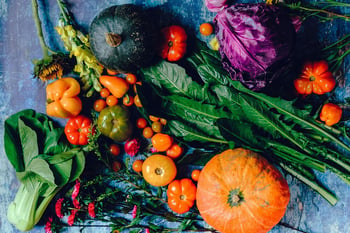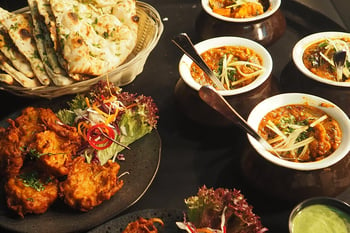
Why do we need to change our menus?
What we eat, and how we eat it is central to our sense of identity and belonging. Food and its traditions affirm who we are - and who we are not. However, curiosity, travel and migration through centuries have ensured that traditions continuously change. Our local cuisines and national identities are continually evolving through the discovery and integration of new ingredients and flavours.
Menu engineering With correct menu engineering, you can tell what sells and what doesn’t sell; you can review the prices of commodities as they fluctuate according to season and demand; you can keep a check with allergen changes. People say if it isn't broke don’t fix it - I say if it isn’t broken…, give it a little shake, see what cracks and then fix it. Take the opportunity not to just review the prices of the dishes, or the dishes on the menu but also the placement of the dishes on the menu. Some items may sell better if placed in a different area of the menu.
With correct menu engineering, you can tell what sells and what doesn’t sell; you can review the prices of commodities as they fluctuate according to season and demand; you can keep a check with allergen changes. People say if it isn't broke don’t fix it - I say if it isn’t broken…, give it a little shake, see what cracks and then fix it. Take the opportunity not to just review the prices of the dishes, or the dishes on the menu but also the placement of the dishes on the menu. Some items may sell better if placed in a different area of the menu.
Globalisation and food
Today, as never before, the speed and reach of globalisation, travel and trade bring all kinds of diverse foods together - and this unsettles our definitions of particular national food cultures. We only need to walk down a city street or glance at a supermarket shelf to witness the influence of travel and migration.
Most high streets in the UK today include a rich mixture of nationalities. Most of us do not need to look far to find Polish delis, Indian curry houses, Jewish bagel, but, as we continue to exchange tastes, traditions and recipes in an ever globalised world, how much closer does it actually bring us? How much do we truly know of someone just by eating their food?
Current food trends Healthy food and drink options have held steady as a significant trend and are the number two demand of guests after 'better value'. Some guests believe that healthy dishes can lack flavour - keep this in mind for your menus, so the taste is never compromised. This will keep your guests coming back for more and your menu more profitable. There are lots of small steps you can take with your ingredients, preparation methods and new menu items that can make your menu healthier and even more appealing.
Healthy food and drink options have held steady as a significant trend and are the number two demand of guests after 'better value'. Some guests believe that healthy dishes can lack flavour - keep this in mind for your menus, so the taste is never compromised. This will keep your guests coming back for more and your menu more profitable. There are lots of small steps you can take with your ingredients, preparation methods and new menu items that can make your menu healthier and even more appealing.
Diversity of food
Work in partnership with catering from of house staff; ask about where they eat out try exchanging new ideas and trends in the gastronomy industry, share the knowledge gathered on the journeys through this wonderfully diverse market to help make your business even more successful now and in the future.
Travel, migration and the need to learn have meant a constant change in today’s world social-economic market were time is scarce human secondary socialisation behaviour pushes towards fast food and convenience foods. Many foods eaten are not generic to one nation, burgers, pizza and frankfurter (hotdogs) are now international dishes.  Cuisine is like the other arts; it changes fashion by the social, cultural and economic factors influencing the education around food. Dietary habits among migrant communities are particularly significant in maintaining group identity. Wider access to foreign cuisine has increased a sense of cosmopolitanism and appreciation of cultural diversity. Culinary traditions have accelerated in recent decades, not only through migration but as a consequence of tourism, broadcasting and writing about food. The globalisation of culture industries, recently though British food, has evolved through the generations (Phylogenetically).
Cuisine is like the other arts; it changes fashion by the social, cultural and economic factors influencing the education around food. Dietary habits among migrant communities are particularly significant in maintaining group identity. Wider access to foreign cuisine has increased a sense of cosmopolitanism and appreciation of cultural diversity. Culinary traditions have accelerated in recent decades, not only through migration but as a consequence of tourism, broadcasting and writing about food. The globalisation of culture industries, recently though British food, has evolved through the generations (Phylogenetically).
Only now is our love of ethnic food becoming apparent aided by the media raising the profile of other countries cuisine Xenomania is spreading through the nation. So keep your menu fresh and exciting.
.png?width=1571&height=766&name=CFD%20knife%20and%20fork%20logo%20(carbonfriendlydining.org).png)

